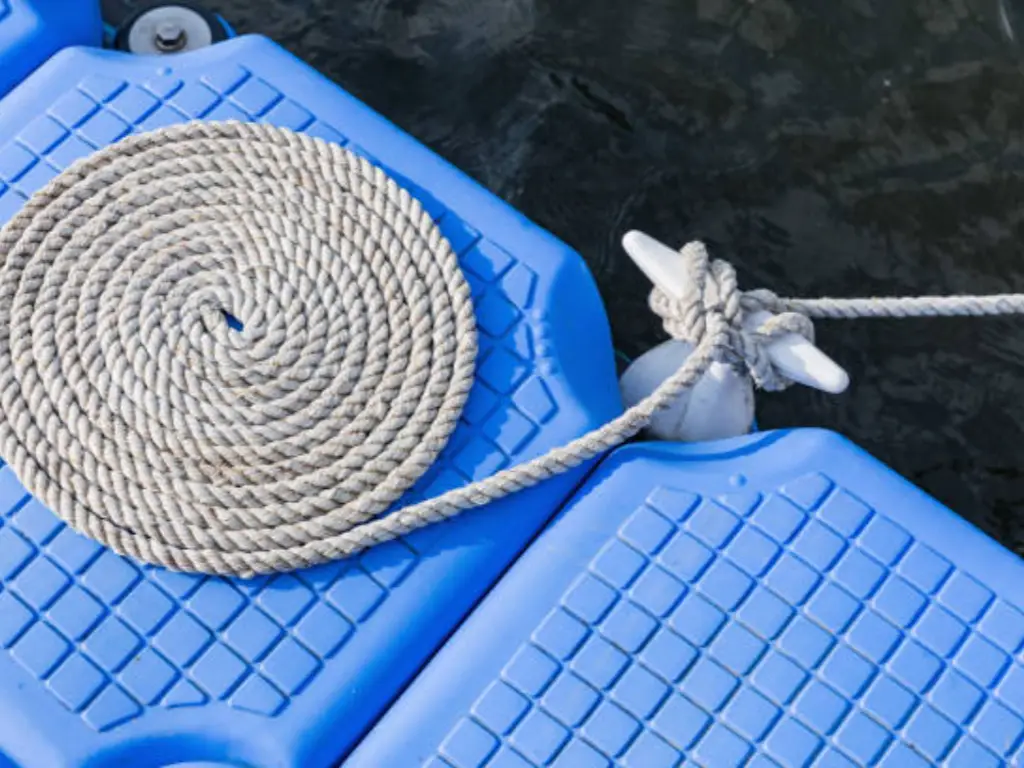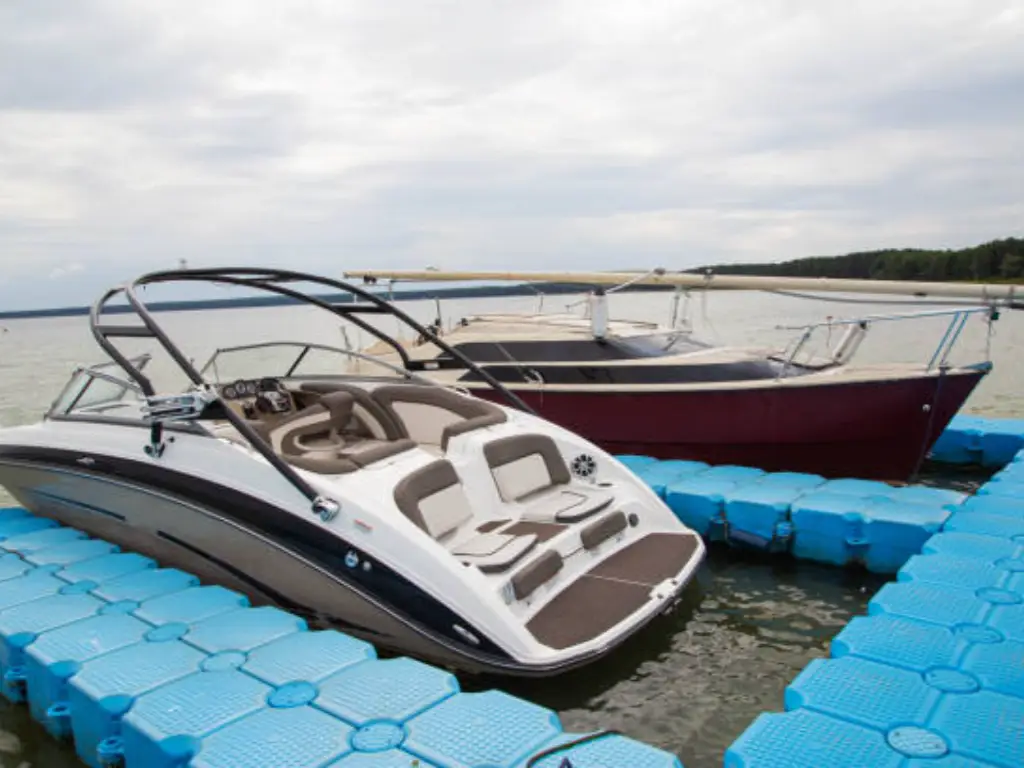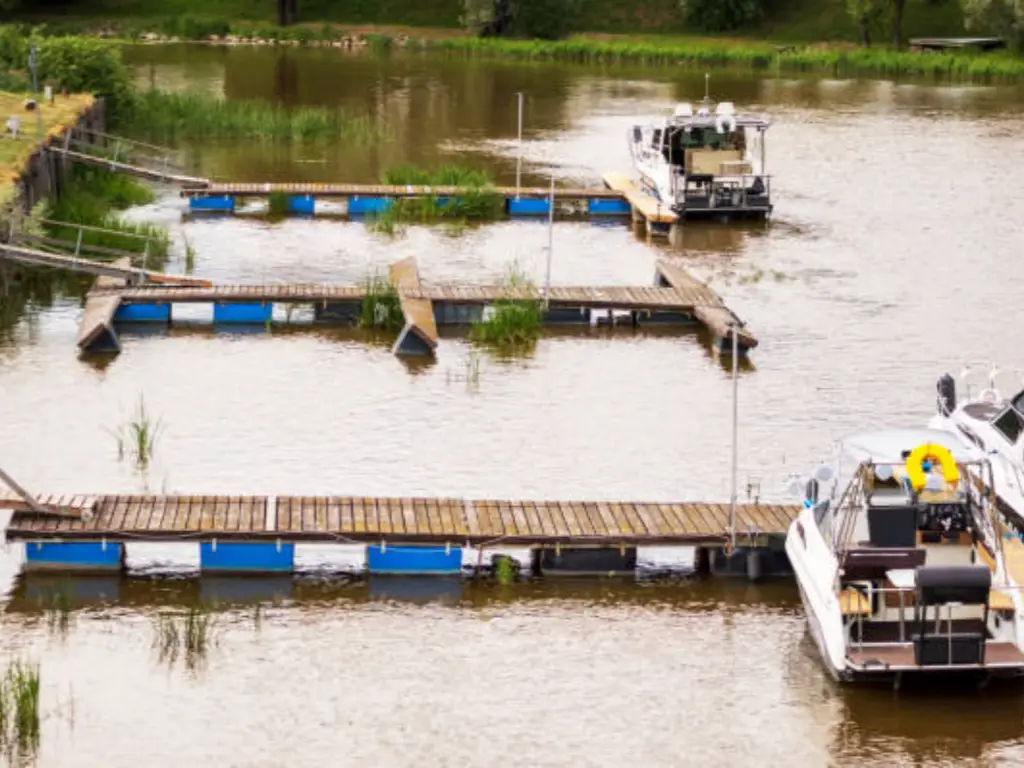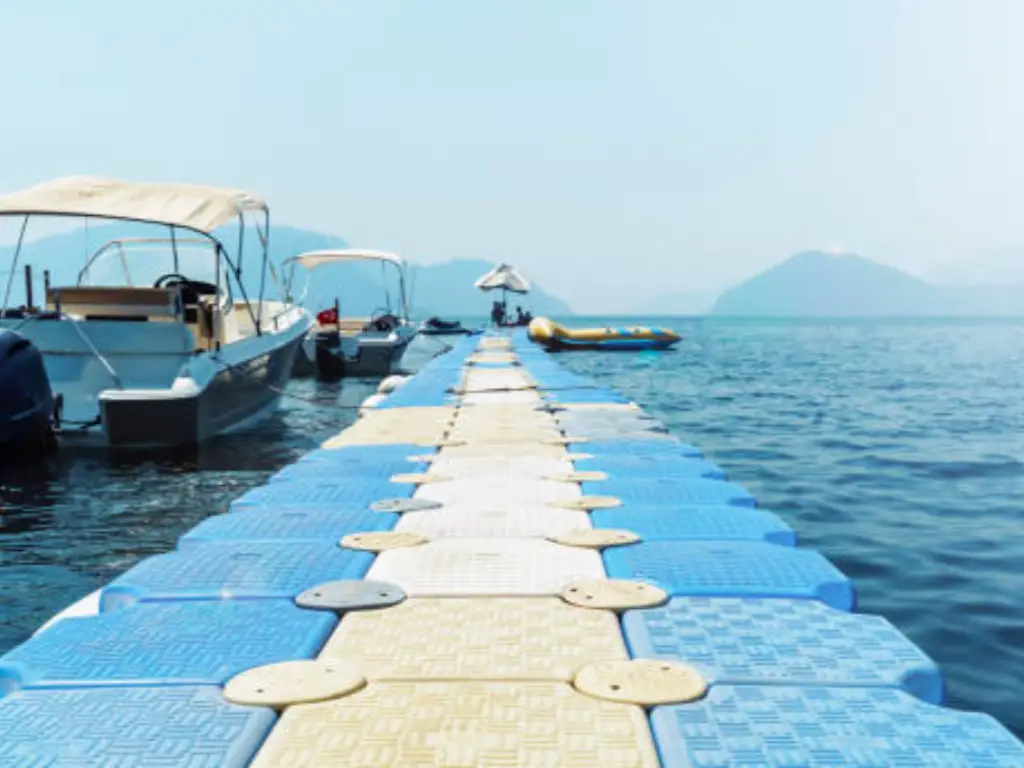Introduction
If you own a boat, you’ve probably wondered: How can I make sure my boat is safe when it’s not being used? Should I decide on mooring or docking? It’s not as easy as it looks to decide what to do. Although both methods hold your boat in place, they have different advantages, disadvantages, and costs that can matter a lot for your boat’s safety, comfort, and future maintenance. If you’re facing a crowded marina or need to choose between a mooring buoy and a regular pier, you should know the main differences between mooring and docking. The best choice for you will be influenced by the size of your boat, the place you plan to keep it, and the local water conditions. In this article, we will examine both options to help you decide what is best for your boat.
What is Mooring? A Quick Guide
Mooring means attaching a boat to a fixed object in the water, for example, a mooring buoy, a mooring anchor, or a stationary structure. Unlike docking, which requires a boat to be tied to a pier or wharf, mooring allows boats to be placed in different locations. Boats are usually tied to the water or mooring areas, using dock lines, boat hooks, or other anchoring devices.
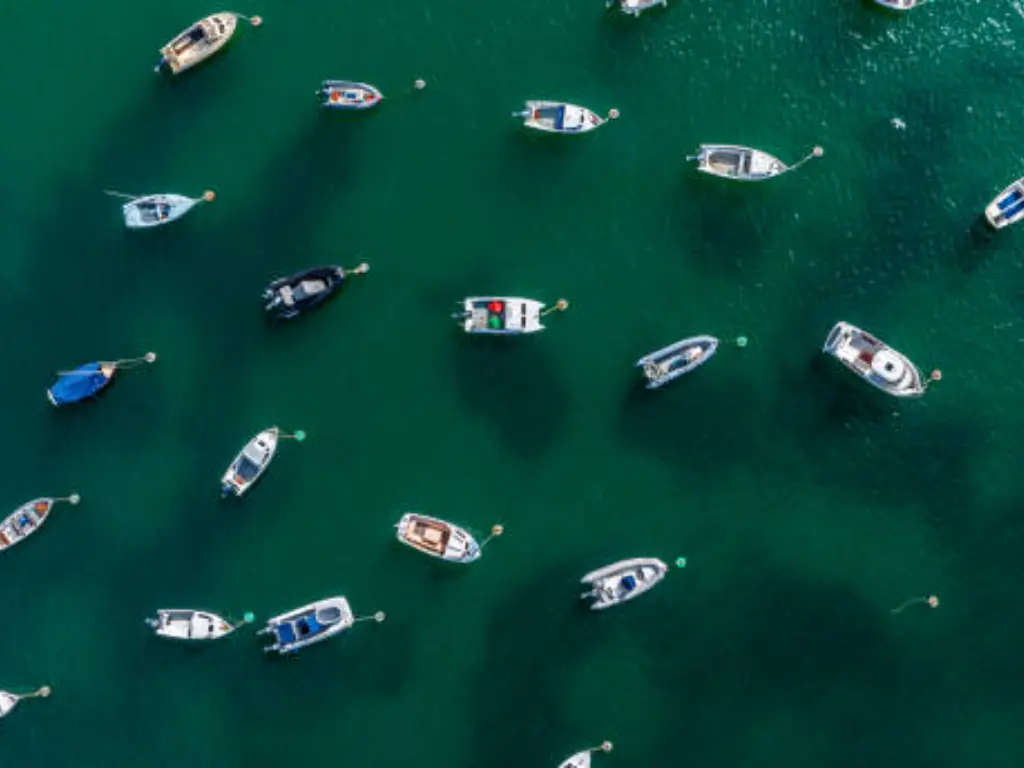
Benefits of Mooring:
- – Greater Flexibility: Mooring allows larger vessels to find more available space, which is very helpful. Because your boat is not attached to a fixed land-based dock, you can moor it in places that docks cannot fit.
- – Adjusting to Water Changes: Mooring helps boats move with the water, which reduces damage to the boat and the mooring lines. It is most helpful in places where the tides or water currents are strong and change a lot.
- – Less Crowding: If there is not enough dock space, mooring can be a good alternative. It allows you to avoid the crowded spots at marinas and decide where to tie up your boat.
When to Choose Mooring:
- – Space Requirements: If your boat needs more room than what a dock can give, mooring might be a better choice.
- – Avoiding Crowded Docks: When there are many boats in a small marina, mooring gives a way to avoid crowding.
- – Flexibility: If you want to be able to move your boat to different places in open water or mooring areas, mooring is the best option.
- – Long-Term Storage: Mooring is a good choice if you want to store your boat for a long period or just during the off-season, as it is not tied to a fixed structure.
Overall, mooring gives boaters flexibility, plenty of space, and security, which is why it is a great choice for those who want to move freely, avoid crowded docks, or need to store their boats for a while.
What is Docking? A Quick Guide
Docking means you attach your boat to a dock or pier, just like tying it to something on land. Many boaters use this method to secure their boats, especially when there are a lot of boats in one place. Dock lines, fenders, and a boat hook act as a buffer to keep your boat in place. They are necessary to stop your boat and the dock from being damaged, allowing for a safe and secure place to moor.
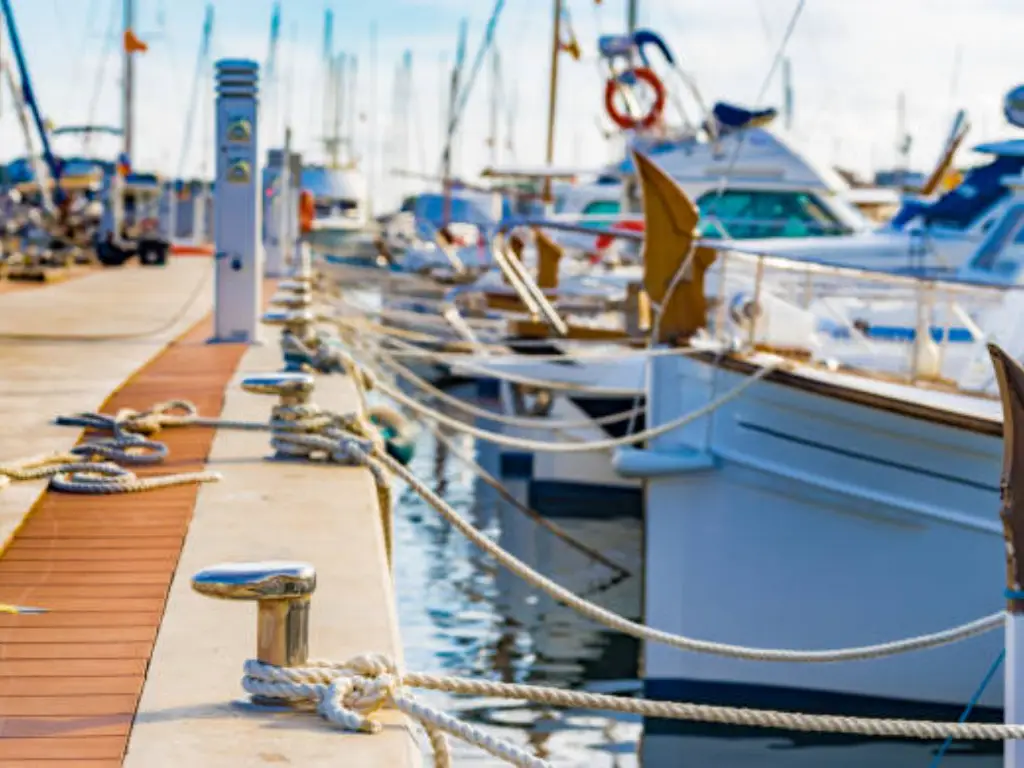
Key Benefits of Docking:
Docking provides many benefits to people who own boats.
- – Convenience: Getting on and off your boat is very convenient thanks to the docking. It is easy to get passengers, gear, and supplies on or off the vehicle. This is a good choice if you use your boat a lot or need to get to it often.
- – Extra Services: Many marinas and piers offer services such as fuel, water, and electricity right where you dock. For example, you might need electricity, access to fresh water, a way to get rid of waste, and security. The presence of these amenities is very helpful for people who travel often or for a long time.
- – Security: Tying your boat to a stationary object on land usually gives it more protection from strong winds or currents than just mooring. It helps prevent your boat from moving or drifting.
When to Choose Docking:
- If you use your boat a lot, docking will make it easier to get on and off.
- If you need to use electricity, water, or other marina services, you should dock your boat.
- For those who want to store their boat for a short period, docking is a convenient and economical option if dock space is easy to find.
All in all, docking is a convenient and safe option for boaters who want easy access to land and extra benefits. It is best for people who use their boats a lot or require a dependable place to store them for a short time.
Mooring vs Docking: A Quick Comparison
You should pick mooring or docking based on what suits your specific needs best. Here is a quick comparison of the two, pointing out their main differences, benefits, and situations where they work best, considering the environment, how often they are used, and the type of boat.
| Feature | Mooring | Docking |
| Space Availability | It can be used on larger boats, usually in open water or mooring areas where space is available. | Because of the dock space, the marina is best for boats that are not too large. |
| Stability & Protection | Because they are less stable and influenced by tides and currents, such vessels may need extra protection (e.g., fenders). | Because they are attached to a fixed pier, they are more stable and better protect the environment. |
| Land Access | Harder to access land, requires boarding from the water. | Easy land access, ideal for frequent use, and quick boarding. |
| Usage Frequency | Suitable for use only a few times a year. | Perfect for use often or for storing items for a long time. |
| Cost | It costs more to store for a long time because anchors and buoys are required. | It is more affordable for short-term needs, especially if there is dock space. |
| Environmental Adaptability | Allows freedom to adjust to water flow but may be vulnerable in rough conditions. | More protected from water flow, but still subject to damage if dock lines are not maintained. |
| Ideal Use Cases | Ideal for big boats, storing them for a long time, or when you want more privacy and room. | Ideal for boats that require easy access to land and the facilities at the marina. |
How Weather and Water Flow Affect Mooring vs Docking
Mooring and docking depend on weather and water flow, and knowing how these factors work is necessary to keep your boat secure and stable.

During rough weather, moored boats can move more than boats that are not tied down. Thanks to this, boats can move with the waves and currents, which can help prevent damage from too much pressure on the boat or its mooring lines. But if the water is very rough, for example, where waves are strong, the boat might rock a lot. This may cause the boat and its mooring lines to wear out. Alternatively, when the water is calm, mooring can give more protection from storms than being attached to a dock. Being flexible in the environment helps the boat respond better to changes.
Docking is more stable because the boat is tied to a fixed object such as a pier or wharf. Being connected to a stable structure stops the boat from moving too much when the water is rough. But if the water flow is fast, the boat could get damaged by rubbing against the dock or fenders. When the weather is severe, dock lines may be under more stress, which means the boat should be checked more often to confirm it is securely fastened. Boats in docks may face stronger waves, and if not watched carefully, they could be damaged.
You should check the usual weather and water flow in your boating area to decide if mooring or docking is safer. Selecting the right mooring buoy, anchor, or dock space that matches these factors will keep your boat safe and steady in different situations.
How to Choose Between Mooring and Docking: Key Factors to Consider
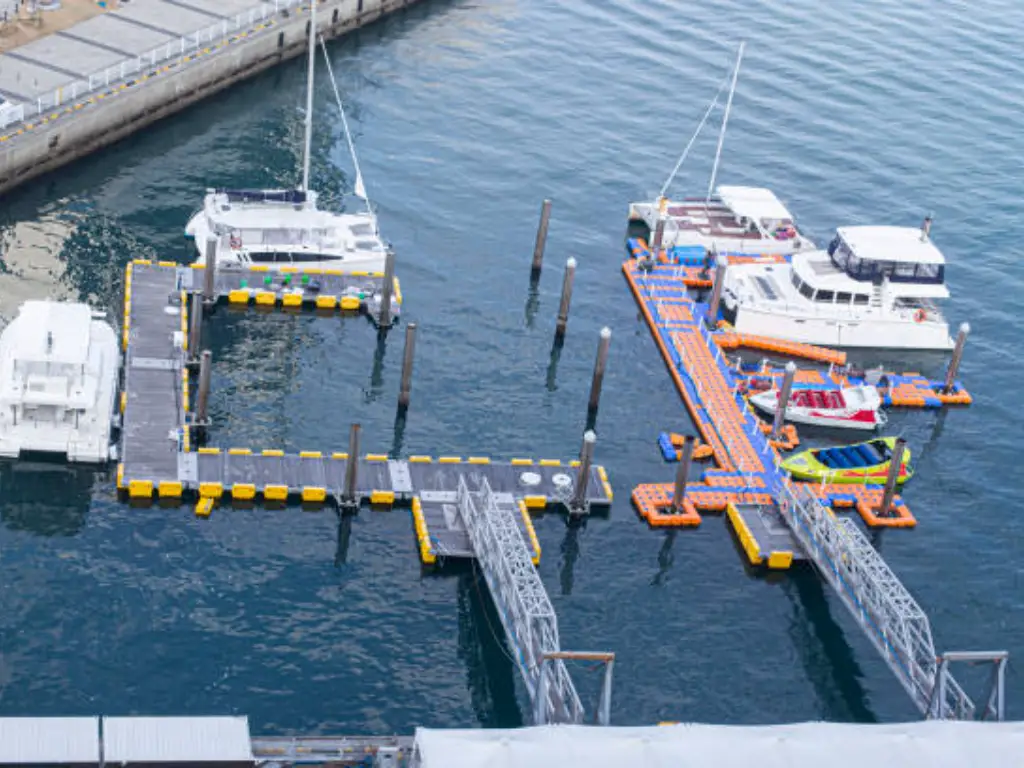
There are several important things boat owners should consider when deciding between mooring and docking. When deciding, take into account the size of your boat, what it needs, the number of docks available, your budget, and the features you want.
- – Size of Your Boat: If your boat is big, it can be tough or expensive to find a dock. Because mooring is flexible, it is a better choice for larger boats. It helps you keep your boat safe in open water or in places where there is more room.
- – Need for Services: If your boat needs to use shore-based services like water, electricity, or security, docking is usually the best option. Marinas and wharves are built for this reason, making it easy for boat owners to use important services and utilities when they are on their boats for a long time.
- – The Budget: How much you can afford is a major factor in choosing between mooring and docking. In certain locations, it may be less expensive to use a dock, mainly for short-term storage or vessels that are not very large. But if you require extra room and flexibility (for bigger boats) or if dock space is difficult to find and costly, mooring could be a better option.
Considering the size of your boat, the services offered, and your budget will help you decide if mooring or docking is the right choice for you.
Conclusion: Making the Right Choice for Your Boat
There is no single answer that works for every situation in the debate of mooring vs docking. Which method you pick should depend on what you want to do with your boat, the environment it will be in, and your long-term goals. You can choose between mooring for flexibility and space or docking for easy access and stability, and both will keep your boat safe.
Before choosing, you should think about the space you need, the climate in your area, and whether you will require dock lines and fenders. Considering these points and talking to people at the marina will help you pick the right place for your boat.
Find the Best Plastic Floating Dock System in Hisea
Hiseadock has over 10 years of manufacturing experience and services in more than 80 countries and regions worldwide. With state-of-the-art manufacturing facilities, including over 5,000 square meters and four state-of-the-art production lines, as well as special equipment such as large rotomolding and blow molding machines, Hiseadock is able to achieve quick shipment of standard products (7-10 days of production without inventory) and lead times of approximately 10-15 days for custom orders.
















FAQ: Common Questions about Mooring vs Docking
- What is the main difference between mooring and docking?
When you moor your boat, you secure it to a buoy or other fixed object in the water, which gives you more freedom to move your boat. Docking means your boat is tied to a pier or wharf, so you can easily use land and shore services.
- Is mooring more expensive than docking?
It depends on the area and the equipment that is required. You may have to pay for mooring anchors, buoys, and routine maintenance of the mooring lines. Docking is usually the cheaper choice for short-term storage, but it may get expensive in popular marinas.
- Can I moor my boat in a marina?
Yes, you can often rent mooring buoys as well as dock space at many marinas. Depending on the marina, you might be able to anchor your boat in the open water or tie it up at a specific berth.
- What is the best way to prevent damage to my boat while moored?
Ensuring your boat is properly tied and using fenders to prevent it from hitting the quay or mooring buoy is very important to prevent damage while moored. They help lower the risk of damage from the environment or from hitting nearby objects by accident.
- Can I use a jetty for mooring my boat instead of a pier?
A jetty may be used for mooring in certain situations. Although piers are mainly used for docking, a jetty can also offer a safe place to tie up your boat, mainly in protected areas. The main point is that jetties are usually smaller than piers, and whether you can use them depends on the rules in your area and the size of your boat.
- What type of anchor is best for mooring a boat in open water?
A Danforth style anchor is often used to tie up boats in places where the seabed is soft, such as in mud or sand. The anchor is famous for its strong grip and lightweight design, which makes it a good choice for securing ships in open water or at designated mooring points.
- How do weather conditions affect mooring and docking?
How a moored vessel is affected by water flow and tides depends on the situation. Strong currents or changing tides allow the boat to move more, but this can cause the mooring lines to wear out and the boat to rock more. Securing your boat with a Danforth style anchor, which is suitable for your area, can help reduce these effects and keep your boat safe.

